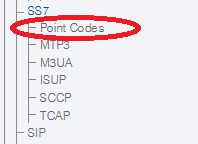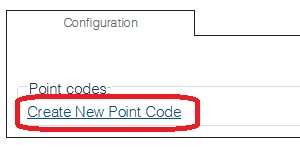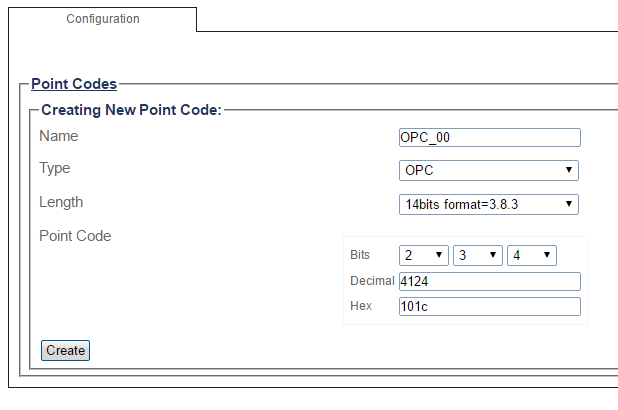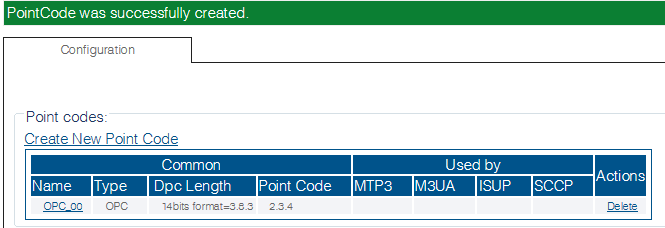Toolpack:Creating SS7 Point Codes E
From TBwiki
(Difference between revisions)
m |
|||
| Line 1: | Line 1: | ||
| − | |||
{{DISPLAYTITLE:Creating SS7 Point Codes}} | {{DISPLAYTITLE:Creating SS7 Point Codes}} | ||
| + | {| class="wikitable" | ||
| + | |- | ||
| + | |rowspan="3"|This article applies to: | ||
| + | |'''Product''' | ||
| + | |'''Version''' | ||
| + | |- | ||
| + | |Tmedia | ||
| + | |2.10, 3.0, 3.2 | ||
| + | |} | ||
| + | |||
Point codes are used to define the adjacent and target networks so that calls are properly routed from one network to the next. | Point codes are used to define the adjacent and target networks so that calls are properly routed from one network to the next. | ||
Latest revision as of 13:39, 25 November 2020
| This article applies to: | Product | Version |
| Tmedia | 2.10, 3.0, 3.2 |
Point codes are used to define the adjacent and target networks so that calls are properly routed from one network to the next.
To create SS7 originating point codes (OPC) and destination point codes (DPC):
1- Click Point Codes in the navigation panel
2- Click Create New Point Code
3- Configure the new point code:
- Enter a name for the point code
- Select a point code type (select type-specific parameters)
- Select a point code length (14, 16, 24 bits)
- Enter a point code. Either as bits, decimal, or hexadecimal.
- Click Create
In this example, an originating point code (OPC) is created.
4. Verify that the "PointCode was successfully created" message appears, and the new point code appears in the Point Codes list
Path
/configurations/@[configuration_name]/point_codes/@[point_code]
Parameters (text)
/configurations/@[configuration_name]/point_codes/@[point_code] length = "14bits format=3.8.3" name = "@[point_code]" point_code = "1.7.2" type = "OPC"
Parameters (json)
{
"length" : "14bits format=3.8.3",
"name" : "@[point_code]",
"point_code" : "1.7.2",
"type" : "OPC"
}



